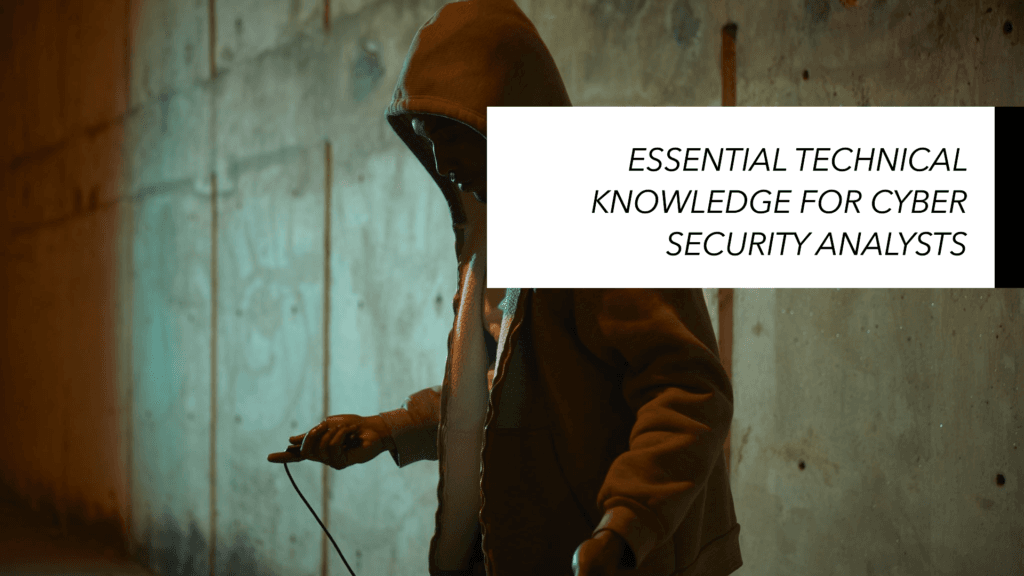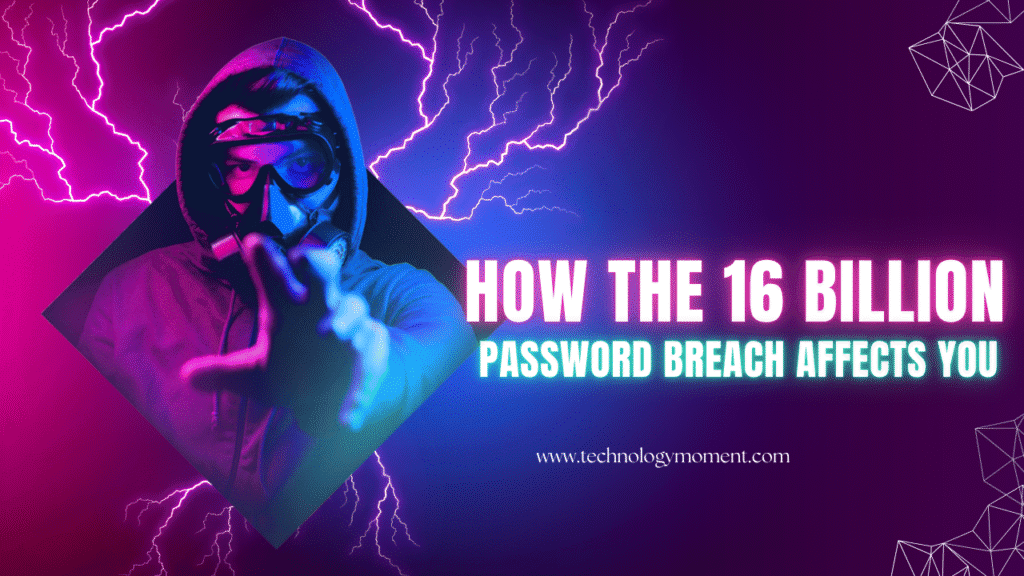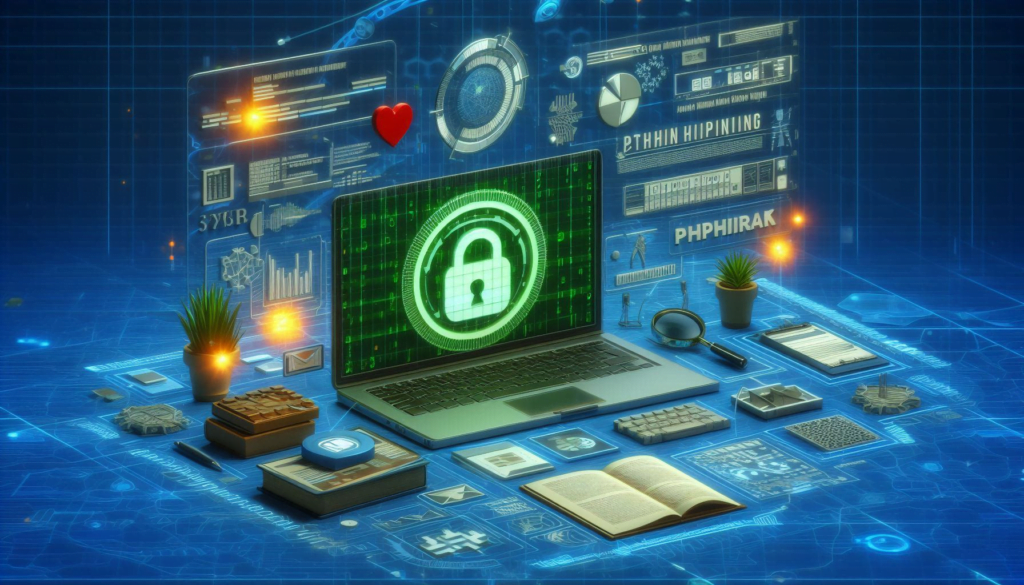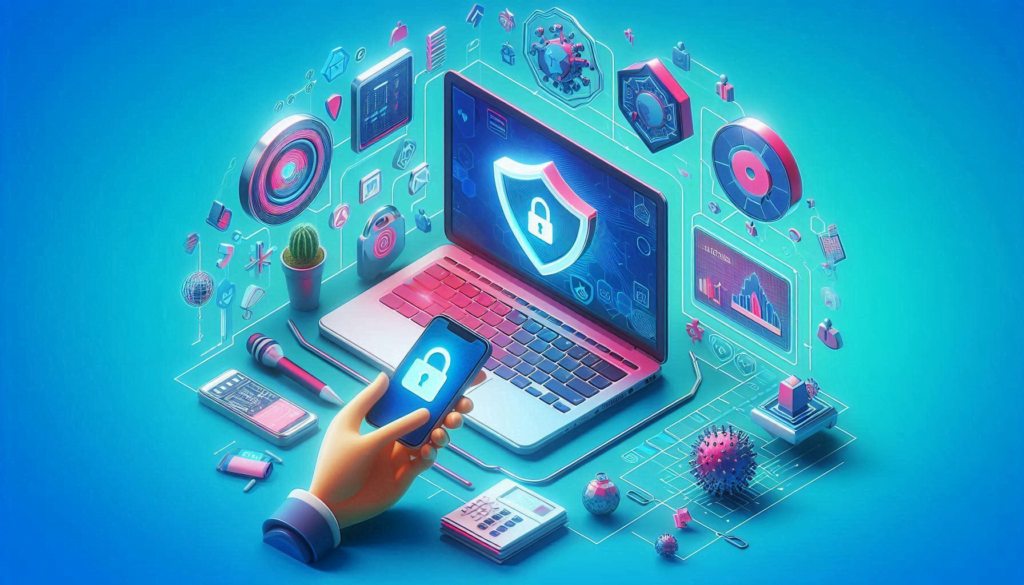In today’s world, cyber threats are constantly evolving, and so are the skills needed to stay ahead of them. At Technology Moment, we’re dedicated to bringing you the latest insights into the critical roles and skills shaping the tech landscape. Our latest post dives deep into the role of a Cyber Security Analyst—a position at the heart of defending against digital threats. Discover the essential skills, knowledge, and tools that make cyber security analysts vital in today’s digital world, and learn what it takes to succeed in this high-stakes field.
In today’s digital age, where organizations and individuals rely heavily on technology, cyber security analysis plays a crucial role in safeguarding sensitive information and critical systems. Cyber security analysts are the “digital bodyguards” who monitor, detect, and respond to cyber threats that could compromise personal privacy, disrupt operations, or even cause financial losses.
Knowing What a Cyber Security Analyst Does
This role involves analyzing data to identify vulnerabilities, monitoring network activities for signs of suspicious behavior, and implementing security measures to prevent cyber-attacks. Think of a cyber security analyst as a vigilant guardian who constantly scans the digital landscape for potential dangers, working proactively to prevent attacks and reactively to contain and minimize the impact of any breaches that occur.
Importance of Cyber Security in Today’s World
With the massive increase in digital transactions, data storage, and online communications, cyber security has become a top priority for businesses, governments, and individuals alike. Cyber threats come in many forms—from malware and ransomware to phishing scams and data breaches. These threats not only pose risks to sensitive data but can also lead to operational disruptions, financial losses, and reputational damage. For example, if a hospital’s network is compromised, patient data may be exposed, or critical medical equipment might become inoperable, jeopardizing lives.
Cyber security analysts play an essential role in combating these threats, ensuring that systems remain secure, data stays protected, and businesses continue to operate without disruption. This role is vital not only for private organizations but also for government agencies that need to protect national security and public welfare.
The Growing Demand for Cyber Security Analysts
With the rise in sophisticated cyber-attacks, there is an ever-increasing demand for skilled cyber security analysts. Industries ranging from healthcare and finance to retail and government are actively seeking these professionals to protect their digital assets. The cyber security field is evolving rapidly, requiring analysts to stay updated with the latest trends, threats, and technological advancements. This demand is further amplified by the shortage of qualified cyber security professionals, making it an attractive career path for those interested in technology, problem-solving, and protecting the digital world.
Cyber security analysis is not just a job; it’s a field that requires dedication, critical thinking, and a continuous learning mindset. Cyber security analysts must be prepared to face ever-evolving threats and to adapt quickly in a landscape where cyber-attackers constantly change their strategies. This dynamic aspect makes the field challenging, yet incredibly rewarding for those passionate about digital security and defense.
In essence, cyber security analysis is about safeguarding the interconnected digital ecosystem that our modern world depends on. Cyber security analysts ensure that sensitive data remains private, critical systems stay operational, and that, ultimately, trust in digital interactions is preserved. The role demands both technical expertise and analytical skills, along with a proactive and detail-oriented mindset, to keep up with the complex and ever-changing threat landscape.
Core Responsibilities of a Cyber Security Analyst
The role of a cyber security analyst is crucial in safeguarding an organization’s digital assets. They act as the first line of defense against cyber threats, using a combination of technical skills, analytical thinking, and constant vigilance. Here’s an in-depth look at the core responsibilities that define this role:
1. Monitoring Network Security
Monitoring network security is one of the primary responsibilities of a cyber security analyst. This task involves consistently overseeing the organization’s network to ensure it’s free from unauthorized access and potential vulnerabilities. Analysts use specialized software to detect unusual behavior, unauthorized access attempts, or suspicious activity in real-time. This can include tracking data flows, examining login attempts, and monitoring system alerts.
Continuous monitoring allows analysts to quickly respond to any anomalies, reducing the chances of a successful cyber attack. This proactive surveillance is critical to minimizing potential damage and securing the organization’s data.
2. Threat Detection and Response
Cyber security analysts must be adept at detecting and responding to cyber threats as they arise. This responsibility requires a deep understanding of cyber attack patterns, from malware infections to phishing attempts. Analysts use a range of tools, such as Intrusion Detection Systems (IDS) and Security Information and Event Management (SIEM) software, to identify threats and evaluate their severity.
Once a threat is detected, the analyst must respond quickly to contain it. This could involve isolating infected systems, blocking unauthorized access, or removing malicious code. A timely response helps to prevent further damage, minimize data loss, and ensure the system’s overall integrity.
3. Incident Management and Reporting
When a cyber incident occurs, the analyst’s role shifts to managing the incident. Incident management involves identifying the scope of the breach, containing the impact, and working to recover affected systems. Analysts document every action taken during an incident to maintain an accurate record for future reference and to identify any potential areas for improvement in response protocols.
Once the incident is under control, the analyst is responsible for reporting on the event. This includes creating a detailed report that outlines the cause, impact, and response taken. The report may also include recommendations to prevent similar incidents in the future. Incident reporting is essential for compliance with industry regulations and standards and provides insights to refine the organization’s security posture.
4. Conducting Vulnerability Assessments and Security Audits
Cyber security analysts play a critical role in proactively identifying weaknesses in an organization’s systems through vulnerability assessments and security audits. Vulnerability assessments involve scanning networks and systems to find potential entry points for hackers. Security audits, on the other hand, provide a comprehensive review of the organization’s security protocols to ensure they align with best practices and regulatory requirements.
By regularly assessing vulnerabilities and conducting audits, cyber security analysts can uncover potential threats before they become critical. This proactive approach allows organizations to strengthen their defenses by addressing weaknesses and ensuring compliance with legal standards.
5. Managing Security Tools and Technology
To effectively protect an organization, cyber security analysts rely on various security tools, including firewalls, anti-virus software, encryption tools, and intrusion detection systems. Part of the analyst’s responsibility is to install, configure, and maintain these tools to ensure they are optimized for the organization’s specific needs. Analysts must also stay updated on the latest security technologies and tools, adapting their systems as new solutions become available.
Managing these tools ensures that the organization’s network remains resilient against potential attacks. It also allows analysts to quickly detect, block, and neutralize threats before they escalate.
6. Training and Educating Employees on Cyber Security Best Practices
Cyber security analysts also contribute to the overall security culture within the organization by educating employees on best practices. Human error is often a weak point in security, with phishing scams and weak passwords among the most common issues. By conducting regular training sessions and workshops, analysts help employees understand how to recognize and avoid potential threats.
Education on cyber hygiene includes teaching employees about secure password creation, safe browsing practices, and recognizing phishing attempts. This training helps to create a more security-conscious workforce, reducing the risk of successful attacks through social engineering and other tactics.
7. Developing and Updating Security Policies and Protocols
Cyber security analysts often play a role in establishing and revising the organization’s security policies. As cyber threats evolve, it’s essential that an organization’s security policies and protocols are kept up-to-date. This includes creating guidelines for data handling, access controls, incident response, and more.
Analysts work closely with IT management to ensure these policies reflect the current threat landscape and align with industry regulations. Well-defined security protocols not only improve an organization’s defense but also provide a clear framework for responding to incidents, ensuring that each team member knows their role in protecting data and systems.
8. Risk Assessment and Management
Cyber security analysts assess and manage risks by identifying potential vulnerabilities within the organization and determining the likelihood and impact of various types of attacks. By conducting regular risk assessments, analysts can prioritize their efforts on the highest risks and develop strategies to mitigate them.
Risk management includes evaluating the cost-benefit of implementing specific security measures, balancing the need for protection with the organization’s budget and resources. This strategic approach ensures that resources are used effectively to maximize security and minimize vulnerabilities.
9. Compliance with Industry Standards and Regulations
Cyber security analysts must ensure that the organization complies with industry-specific standards and regulations, such as GDPR, HIPAA, and PCI-DSS. Compliance is crucial not only for avoiding legal penalties but also for maintaining trust with clients and stakeholders. Analysts are responsible for understanding the applicable regulatory requirements and ensuring that the organization’s security measures align with these standards.
This responsibility often involves conducting audits, preparing compliance reports, and implementing policies that meet or exceed regulatory expectations. By staying compliant, organizations not only avoid fines but also demonstrate their commitment to maintaining high security standards.
Table of Contents
Key Skills for Success as a Cyber Security Analyst
To thrive as a cyber security analyst, professionals must possess a well-rounded skill set that combines technical expertise, analytical thinking, and strong interpersonal abilities.
1. Technical Skills
- Network Security Fundamentals
Understanding network security is at the core of a cyber security analyst’s role. Analysts need a firm grasp of concepts like firewalls, Virtual Private Networks (VPNs), and secure socket layer (SSL) protocols. This knowledge allows them to monitor and secure network traffic, detect vulnerabilities, and respond to potential threats effectively. - Knowledge of Operating Systems (Linux, Windows)
Cyber security analysts work across various operating systems, but Linux and Windows are the most common. Linux is particularly valued in cyber security due to its flexibility, while Windows is ubiquitous in corporate environments. Analysts must know how to configure and secure these operating systems to prevent unauthorized access or exploitation by attackers. - Proficiency in Programming and Scripting
Basic programming knowledge can make a significant difference in a cyber security analyst’s effectiveness. Languages like Python, JavaScript, and Bash scripting are commonly used for automating tasks, analyzing logs, and even creating custom security tools. Programming skills empower analysts to identify patterns, perform forensic analysis, and automate repetitive tasks, making their responses faster and more accurate.
2. Analytical Skills
- Critical Thinking
Cyber security involves constant problem-solving. Analysts must have strong critical thinking skills to evaluate complex situations and analyze data from different sources to make well-informed decisions. This skill is essential for identifying subtle signs of breaches, understanding the nature of attacks, and developing effective responses to protect systems and data. - Problem Solving and Decision Making
In cyber security, incidents often demand immediate action. Analysts must be able to troubleshoot issues, diagnose security gaps, and make quick, effective decisions. For instance, during a cyber attack, they may need to decide whether to isolate certain parts of the network or deploy specific security measures to contain the threat, all while maintaining critical operations and minimizing potential losses.
3. Soft Skills
- Communication and Collaboration
Cyber security analysts frequently interact with other IT professionals, management, and sometimes even clients. Analysts must also collaborate with colleagues, which requires clear communication and teamwork skills to effectively address security incidents and develop preventive strategies. - Attention to Detail and Precision
Cyber security is a field where small oversights can lead to significant breaches. Analysts must have an acute eye for detail to spot irregularities in network traffic, error logs, or system behaviors. This precision enables them to detect potential threats early and ensure thoroughness in their security assessments, reducing the chance of missed vulnerabilities.
By developing a combination of these technical, analytical, and soft skills, cyber security analysts are well-equipped to tackle the complex and ever-evolving challenges of cyber security. These skills not only help them protect digital environments but also contribute to a stronger security posture for their organizations, ensuring long-term success and resilience against cyber threats.
Technical Knowledge Essential for Cyber Security Analysts
Cyber security analysts rely on a solid foundation of technical knowledge to detect, prevent, and respond to security threats effectively. Here’s an in-depth look at the technical expertise that sets successful analysts apart:

1. Understanding Cyber Threats and Attack Vectors
Cyber security analysts must understand the various types of cyber threats, from malware and phishing to more sophisticated attacks like ransomware and advanced persistent threats (APTs). Recognizing how these threats operate and spread within networks enables analysts to anticipate possible attacks and implement preventative measures. This understanding is also crucial for identifying attack vectors—the pathways through which cybercriminals gain unauthorized access, such as through network vulnerabilities, unpatched software, or social engineering tactics.
2. Familiarity with Security Tools and Technologies
To combat cyber threats, analysts use a range of tools and technologies. Here are some core categories:
- Firewalls: These act as the first line of defense, monitoring incoming and outgoing traffic based on established security rules. Analysts configure and maintain firewalls to block unauthorized access.
- Intrusion Detection Systems (IDS) and Intrusion Prevention Systems (IPS): IDS/IPS tools monitor network traffic for suspicious activity and alert analysts to potential security breaches. IDS focuses on detecting and alerting, while IPS goes a step further by actively preventing malicious traffic.
- SIEM (Security Information and Event Management) Tools: SIEM systems collect and analyze data from multiple sources across a network to identify anomalies and potential threats. Familiarity with SIEM tools is essential for cyber security analysts, as they provide a centralized view of network activity.
- Endpoint Detection and Response (EDR): EDR solutions detect and investigate suspicious activities on devices within a network. Cyber security analysts use EDR to monitor, detect, and respond to threats on individual endpoints, such as laptops, smartphones, and servers.
3. Knowledge of Operating Systems (Windows, Linux, and macOS)
Cyber security analysts must be familiar with multiple operating systems since each has unique vulnerabilities and security features.
- Linux: Often used in servers and security-focused environments, Linux is highly customizable, making it a favorite among cyber security professionals. Knowledge of Linux commands and security tools like IPTables (for firewall management) and TCPDump (for network traffic analysis) is essential.
- Windows: A common target for cyber-attacks, Windows operating systems require a thorough understanding of their built-in security features, such as Windows Defender, BitLocker, and Group Policy Management. Analysts must also know how to investigate Windows logs to track suspicious activity.
- macOS: Although less frequently targeted, macOS systems still face cyber threats. Understanding macOS file structure, security protocols, and tools like XProtect and Gatekeeper can help analysts protect Apple systems.
4. Proficiency in Programming and Scripting
Programming and scripting skills help analysts automate routine tasks, analyze malware, and customize security tools. Some of the most common programming languages for cyber security analysts include:
- Python: Known for its versatility and ease of use, Python is popular for writing scripts to automate tasks, analyze logs, and develop custom security tools.
- PowerShell: Widely used in Windows environments, PowerShell enables analysts to automate system administration tasks, manage Active Directory, and analyze logs.
- Bash: Commonly used in Linux environments, Bash scripting is useful for system automation, data parsing, and performing repetitive tasks across multiple systems.
5. Understanding of Network Security and Protocols
A thorough knowledge of network fundamentals is crucial for identifying vulnerabilities and securing networks. This includes an understanding of key protocols:
- TCP/IP: The foundation of all internet-based communications, TCP/IP knowledge helps analysts understand how data flows within a network and identify points of vulnerability.
- DNS (Domain Name System): Attackers often exploit DNS, so analysts must understand how DNS works and how to detect anomalies that might indicate DNS spoofing or cache poisoning attacks.
- HTTP/HTTPS: Since these protocols are the basis of web traffic, analysts should understand how they work to identify anomalies and mitigate risks like cross-site scripting (XSS) and SQL injection attacks.
6. Encryption and Cryptography
Cyber security analysts must understand encryption and cryptographic principles to protect sensitive data in transit and at rest. Knowledge of encryption protocols such as SSL/TLS (used in HTTPS) and IPsec (used in secure VPNs) is essential for protecting data from interception during transmission.
Additionally, analysts should know about:
- Hash Functions: Commonly used in password storage, hash functions like SHA-256 transform data into fixed-length strings, making it difficult for attackers to reverse-engineer the original data.
- Public Key Infrastructure (PKI): PKI is a framework for managing digital certificates and public-key encryption, essential for secure communication in many applications.
7. Vulnerability Management and Penetration Testing
Identifying and mitigating vulnerabilities is a core aspect of cyber security. This involves understanding how to:
- Conduct Vulnerability Assessments: Analysts regularly scan systems for weaknesses using tools like Nessus, OpenVAS, and Qualys. These tools identify outdated software, misconfigurations, and other vulnerabilities that could be exploited by attackers.
- Perform Penetration Testing: Penetration testing involves simulating attacks on a system to discover exploitable vulnerabilities. While full penetration testing often requires specialized training, a strong understanding of the process and tools (like Metasploit, Burp Suite, and Wireshark) can help analysts identify weaknesses in their own systems.
8. Incident Response and Forensics
A strong knowledge of incident response processes and digital forensics helps cyber security analysts respond to security breaches and collect evidence for investigations. This includes:
- Incident Response Procedures: Understanding the steps in an incident response plan, including detection, containment, eradication, and recovery, enables analysts to handle breaches quickly and effectively.
- Forensic Analysis: Analysts may need to examine compromised systems to determine how an attack occurred. Forensic skills involve analyzing logs, examining file systems, and using forensic tools like EnCase or Autopsy to gather evidence.
Certifications and Education
In the cyber security field, certifications and education play a crucial role in building the knowledge, skills, and credibility necessary for a successful career as a cyber security analyst. Here’s a closer look at why these elements are so important and what specific certifications and educational pathways can enhance career prospects in this field.
1. Importance of Certifications in Cyber Security
Certifications are widely recognized in cyber security and often serve as industry benchmarks for skill and expertise. They offer a structured learning path that validates the analyst’s knowledge, skills, and understanding of security concepts. For employers, certifications provide a trusted way to measure the technical competencies of candidates, making certified analysts more attractive in the job market. For analysts, certifications can open doors to advanced roles and higher salaries, as well as increase their ability to handle a range of security tasks.
2. Common Certifications for Cyber Security Analysts
Several certifications are particularly valuable for aspiring and established cyber security analysts. Each certification offers specialized knowledge and skills that cater to different aspects of cyber security.
- CompTIA Security+: This is often the starting point for many cyber security professionals. CompTIA Security+ covers foundational skills in risk management, cryptography, network security, and threat analysis, making it ideal for beginners. It is widely accepted as an entry-level certification that demonstrates a general understanding of cyber security principles.
- Certified Ethical Hacker (CEH): CEH is a more specialized certification for those looking to understand hacking techniques and how to protect systems against them. It focuses on ethical hacking methods, penetration testing, and identifying potential vulnerabilities in systems. CEH is beneficial for those who want to explore penetration testing and ethical hacking within their role as analysts.
- Certified Information Systems Security Professional (CISSP): CISSP is a more advanced certification and is highly regarded in the industry. It covers comprehensive topics like asset security, software development security, and risk management. CISSP is ideal for experienced professionals looking to advance to senior or managerial roles, as it requires a minimum of five years of work experience in information security.
- Certified Information Security Manager (CISM): CISM focuses on information risk management, program development, and incident response. It is often pursued by professionals looking to move into managerial roles, as it emphasizes the business side of security management along with technical skills.
- Certified Information Systems Auditor (CISA): CISA is aimed at professionals interested in information systems auditing. It provides insights into assessing and managing vulnerabilities within an organization. CISA is particularly useful for analysts who want to work closely with IT auditing or compliance, as it covers essential auditing procedures and controls.
- GIAC Certifications: The Global Information Assurance Certification (GIAC) offers specialized certifications in various domains, such as penetration testing, security essentials, and forensics.
3. Educational Background Recommended for Cyber Security Analysts
While there is no one-size-fits-all educational path for a cyber security analyst, certain degrees and educational backgrounds are commonly pursued. A Bachelor’s Degree in fields like Computer Science, Information Technology, or Cyber Security provides a strong foundation in programming, networking, and computer systems. This formal education is valuable for building a well-rounded understanding of technical concepts and prepares analysts for real-world scenarios.
For those looking to advance further, a Master’s Degree in Cyber Security or a related field can offer in-depth expertise, particularly in areas like cryptography, data protection, and advanced network security. A master’s degree is often beneficial for professionals aiming for senior or leadership roles in cyber security.
4. On-the-Job Training and Continuous Learning
In addition to formal education and certifications, on-the-job training and continuous learning are essential for cyber security analysts. This field is constantly evolving, and staying updated on the latest threats, technologies, and best practices is crucial. Many organizations provide in-house training, simulations, and access to online learning platforms to keep their teams informed.
Analysts are also encouraged to join cyber security forums, attend conferences, and complete courses from recognized platforms like SANS Institute, Udacity, and Coursera. Continuous learning not only keeps analysts current with industry trends but also enhances their adaptability to new technologies and threats.
5. The Path to Building a Strong Portfolio
A strong portfolio of certifications, relevant education, and hands-on experience is invaluable in the cyber security field. Aspiring cyber security analysts can start by completing foundational certifications, then gain experience through internships, entry-level positions, and project-based learning. As they progress, more advanced certifications and possibly even a master’s degree can help them move toward specialized roles or senior positions.
Certifications and education provide the framework for a successful career as a cyber security analyst. With a blend of structured learning, practical experience, and ongoing education, cyber security analysts can confidently tackle the complexities of today’s digital security challenges and stay ahead in an ever-evolving field.
Tools and Software Cyber Security Analysts Use
Cyber security analysts rely on an array of tools and software to monitor, detect, respond to, and prevent cyber threats. These tools help streamline complex tasks, allowing analysts to safeguard networks more efficiently and accurately. Here’s a closer look at some of the critical tools and software cyber security analysts use in their daily operations.
1. Security Information and Event Management Tools
Security Information and Event Management (SIEM) tools are among the most critical in an analyst’s toolkit. These platforms collect, analyze, and store security data from multiple sources across an organization’s network. SIEM tools help analysts detect, investigate, and manage security incidents in real time.
- Functions of SIEM Tools: SIEM systems consolidate logs from firewalls, servers, and applications, and analyze them to detect unusual patterns. They offer insights into potential threats by aggregating data and creating alerts for any suspicious activities.
- Popular SIEM Tools: Some widely used SIEM tools include Splunk, IBM QRadar, and ArcSight. These platforms allow cyber security analysts to customize alerts, manage incidents, and even automate certain responses to specific types of threats.
2. Intrusion Detection and Prevention Systems
IDS and IPS are critical in identifying and stopping unauthorized access attempts. An Intrusion Detection System (IDS) monitors network traffic and provides alerts about potential threats, while an Intrusion Prevention System (IPS) actively blocks these threats.
- Functions of IDS and IPS: IDS tools monitor incoming and outgoing network traffic for anomalies, flagging any that resemble known attack patterns. IPS tools go a step further by automatically blocking suspicious activities, keeping threats from infiltrating the network.
- Popular IDS/IPS Tools: Notable examples include Snort, Suricata, and Cisco Firepower. Snort, for instance, is an open-source IDS that’s highly configurable and effective for detecting real-time attacks.
3. Firewalls
They establish a barrier between trusted internal networks and untrusted external ones, protecting systems from malicious access.
- Functions of Firewalls: Firewalls analyze incoming and outgoing data packets and apply specific rules to block or allow traffic.
- Types of Firewalls: Firewalls can be software-based or hardware-based, with next-generation firewalls offering advanced features like application awareness, integrated intrusion prevention, and cloud-delivered threat intelligence.
4. Vulnerability Scanners
Vulnerability scanners are tools used to identify, assess, and remediate vulnerabilities in systems, networks, and applications. These tools help analysts locate weak points that could be exploited by attackers, allowing them to take proactive measures.
- Functions of Vulnerability Scanners: These tools scan devices, applications, and networks to detect known vulnerabilities. They generate reports that highlight security flaws and suggest actions to mitigate them.
- Popular Vulnerability Scanners: Nessus, Qualys, and OpenVAS are some of the leading vulnerability scanners. Nessus, for example, can scan networks for thousands of potential vulnerabilities, providing in-depth reports for analysts to act on.
5. Endpoint Detection and Response (EDR) Tools
EDR tools are designed to monitor and protect endpoints (devices like computers and smartphones) against cyber threats. With the growing trend of remote work, endpoint security has become a critical focus for cyber security.
- Functions of EDR Tools: EDR solutions provide continuous monitoring of endpoints, enabling real-time detection and response to suspicious activities. They offer insights into the root cause of attacks, helping analysts understand how to prevent similar incidents in the future.
- Popular EDR Tools: Well-known EDR tools include CrowdStrike Falcon, Microsoft Defender ATP, and Carbon Black. These tools provide incident investigation and threat-hunting capabilities to track malicious activities on devices connected to the network.
6. Penetration Testing Tools
Penetration testing (or pen testing) tools simulate cyber-attacks on systems and networks to identify vulnerabilities. These tools allow cyber security analysts to assess the security of applications, networks, and systems in a controlled environment.
- Functions of Penetration Testing Tools: Penetration testing tools help analysts find and fix security gaps before attackers can exploit them. They simulate various attack techniques to identify exploitable vulnerabilities.
- Popular Penetration Testing Tools: Metasploit, Burp Suite, and Nmap are widely used tools for penetration testing. Metasploit, for instance, provides a powerful framework for simulating attacks, helping analysts uncover vulnerabilities that could otherwise go unnoticed.
7. Data Encryption Tools
- Functions of Data Encryption Tools: These tools protect data both in transit and at rest by converting it into unreadable code, which can only be deciphered with an encryption key. Encryption tools are crucial for securing sensitive data such as passwords, financial information, and intellectual property.
- Popular Encryption Tools: Tools like VeraCrypt, BitLocker, and AxCrypt are popular choices. BitLocker, for instance, is a full-disk encryption tool by Microsoft, commonly used to protect data on Windows devices.
8. Forensic Analysis Tools
Forensic tools assist cyber security analysts in investigating and responding to cyber incidents. They are essential for analyzing digital evidence in the aftermath of a security breach.
- Functions of Forensic Tools: These tools allow analysts to trace the origin and scope of an attack, collecting evidence and analyzing files, network traffic, and system memory to understand how the attack occurred.
- Popular Forensic Analysis Tools: FTK (Forensic Toolkit), Autopsy, and EnCase are popular choices for digital forensics. They enable in-depth analysis of system files, email archives, and deleted data, providing critical insights for forensic investigations.
9. Threat Intelligence Platforms (TIPs)
Threat Intelligence Platforms collect and analyze threat data from a variety of sources, helping analysts stay updated on the latest cyber threats.
- Functions of TIPs: TIPs gather information about current threats, attack techniques, and indicators of compromise (IOCs), enabling analysts to make informed security decisions and better defend their networks.
- Popular TIPs: Anomali, Recorded Future, and ThreatConnect are popular tools in this category. They offer real-time updates on cyber threats and help organizations prioritize and respond to potential risks.
10. SOAR (Security Orchestration, Automation, and Response) Tools
SOAR platforms enable cyber security analysts to streamline and automate their workflows, allowing them to respond to incidents faster and more efficiently.
- Functions of SOAR Tools: SOAR tools integrate various security tools, automate repetitive tasks, and provide centralized dashboards for managing and responding to incidents. They significantly reduce the response time to security incidents by automating certain tasks.
- Popular SOAR Tools: Splunk SOAR, Palo Alto Cortex XSOAR, and IBM Resilient are commonly used in this space. These platforms allow analysts to define automated workflows and streamline threat detection, investigation, and response processes.
Importance of Staying Updated in Cyber Security
Staying updated in cyber security is absolutely essential for cyber security analysts and professionals in the field. The landscape of cyber threats and technologies is constantly evolving, which means that the knowledge and skills that were effective last year—or even last month—may not be as effective today. To stay ahead, analysts must continuously learn, adapt, and expand their knowledge.
1. Adapting to New Threats and Attack Methods
Cyber threats evolve at an astonishing pace. Hackers and malicious actors are constantly finding new ways to exploit vulnerabilities in software, networks, and systems. As soon as one type of attack is mitigated, a new one can emerge. Whether it’s ransomware, phishing scams, zero-day attacks, or advanced persistent threats (APTs), analysts need to understand these trends to protect systems effectively. Staying informed about these emerging threats allows cyber security analysts to anticipate attacks, update defenses, and employ the latest security measures.
2. Mastering New Tools and Technologies
The cyber security industry is highly dynamic, with new tools, frameworks, and software regularly introduced to help analysts detect, prevent, and respond to cyber threats. For example, Security Information and Event Management (SIEM) systems, intrusion detection/prevention systems (IDS/IPS), and endpoint protection platforms are frequently updated with new features to combat the latest threats. Analysts must stay current with these tools to utilize them effectively, ensuring they’re fully prepared to leverage advanced technologies like artificial intelligence (AI) and machine learning (ML) for threat detection and risk analysis.
3. Participating in Cyber Security Communities and Forums
One effective way to stay updated is by actively participating in cyber security communities and forums. Online forums, groups, and communities allow analysts to share information, insights, and the latest findings on cyber threats. Platforms like Reddit, Stack Overflow, and specialized cyber security forums offer real-time information and discussions about new vulnerabilities, industry trends, and effective countermeasures. These communities serve as a valuable source of insight from peers and experts and provide an excellent opportunity for networking.
4. Attending Conferences and Training Workshops
Cyber security conferences and workshops are fantastic for professional development, allowing analysts to gain insights from industry leaders, witness new tools and techniques in action, and learn best practices. Conferences like DEF CON, Black Hat, and RSA bring together experts from around the world to discuss the latest advancements in cyber security. By attending these events, analysts can stay informed about cutting-edge research, tools, and techniques directly from those at the forefront of the industry. Many conferences also provide hands-on workshops and training that can help analysts sharpen their skills.
5. Engaging in Continuous Learning and Certifications
Given the complexity and rapid evolution of cyber security, continuous learning is crucial. Earning certifications such as CompTIA Security+, Certified Information Systems Security Professional (CISSP), and Certified Ethical Hacker (CEH) provides a structured path for gaining new knowledge. Certifications require analysts to refresh their skills regularly, often through exams and updates in certification requirements. By keeping certifications up-to-date, cyber security analysts ensure they remain proficient and equipped to handle new and sophisticated security challenges.
6. Adapting to Changes in Law and Regulation
Cyber security analysts must also stay informed about changes in laws, regulations, and compliance requirements that impact their organizations. Regulations like the General Data Protection Regulation (GDPR) in Europe, the Health Insurance Portability and Accountability Act (HIPAA) in the U.S., and the California Consumer Privacy Act (CCPA) affect how companies manage and protect sensitive information. These regulations are frequently updated to address new cyber security challenges, and staying compliant requires an understanding of the latest legal standards.
7. Monitoring Cyber Security News and Industry Publications
Cyber security analysts can benefit from subscribing to cyber security publications, newsletters, and websites, such as the SANS Institute, CyberScoop, and Dark Reading. These resources provide timely updates on the latest cyber attacks, research, vulnerabilities, and product reviews. By staying informed through these reliable news sources, analysts can quickly respond to security trends and changes in the threat landscape.
Steps to Become a Cyber Security Analyst
Becoming a cyber security analyst is a rewarding journey that requires a blend of education, hands-on experience, and continuous learning. Here’s a comprehensive guide to help you get started and succeed in this dynamic field.
1. Educational Pathways and Certification Requirements
While not every cyber security analyst has a formal degree, having one can give you a strong foundation. Here’s a look at the different educational paths that can help you enter the field:
- Bachelor’s Degree in Cyber Security or Related Fields: A degree in cyber security, computer science, information technology, or a related field offers foundational knowledge in areas like network security, programming, and systems analysis.
- Specialized Certifications: Certifications demonstrate your technical skills and commitment to the field. Some essential certifications for aspiring cyber security analysts include:
- CompTIA Security+: Great for beginners, covering the basics of network security, cryptography, and risk management.
- Certified Ethical Hacker (CEH): Focuses on the skills needed to identify and prevent hacking tactics.
- Certified Information Systems Security Professional (CISSP): A higher level of accreditation for experts who have worked for at least five years.
- CompTIA CySA+ (Cybersecurity Analyst): Specific to cyber security analysis, it validates skills in threat detection and response.
Having both a degree and certifications strengthens your profile, showing employers you have a solid academic foundation and practical skills.
2. Building Practical Experience
Practical experience is a critical component in becoming a cyber security analyst. Employers look for candidates who understand real-world challenges and know how to address them.
- Internships: Many companies offer internships in IT or cyber security departments. Interning allows you to work with experienced professionals, understand the tools and technologies in use, and develop problem-solving skills.
- Entry-Level IT Jobs: Starting in an entry-level IT role (such as network administration or technical support) can help you build an understanding of networks, systems, and common security issues. This experience can be beneficial when you transition into a security-focused role.
- Cyber Security Bootcamps and Labs: Many online and in-person bootcamps and cyber security labs offer simulated environments where you can practice hacking and defending systems, gaining exposure to real cyber threats and response techniques.
3. Building a Portfolio and Gaining Experience
A portfolio showcases your skills and experience to potential employers. For cyber security analysts, a portfolio could include:
- Projects: Demonstrate your skills through personal projects, such as setting up a secure network environment, conducting a penetration test, or creating security documentation for a sample company.
- CTFs (Capture the Flag Competitions): Participating in CTF competitions helps you refine your problem-solving skills, work under pressure, and tackle real-world challenges. Many employers value CTF experience as it highlights practical skills in action.
- Documented Case Studies: If you’ve completed projects or internships, write case studies that outline the security issues you identified, the methods you used to address them, and the outcome.
4. Networking and Professional Connections
Networking can open doors to job opportunities, mentorship, and resources that will support your career growth.
- Join Cyber Security Groups and Forums: Many online communities, such as the ISC2 Community or Reddit’s r/cybersecurity, offer networking opportunities, discussions, and learning resources.
- Attend Industry Conferences and Webinars: Conferences like DEF CON, Black Hat, and regional cyber security events connect you with industry professionals, hiring managers, and experts who can offer insights and advice.
- Engage on LinkedIn and Other Social Platforms: Share articles, projects, and insights on LinkedIn to showcase your skills. Engaging with posts in the cyber security community can lead to meaningful connections and learning opportunities.
5. Developing Soft Skills
While technical skills are crucial, soft skills play a significant role in a cyber security analyst’s success.
- Communication Skills: Cyber security analysts often need to communicate complex issues to non-technical stakeholders. Improving your communication skills can help you explain security issues effectively, gain buy-in for solutions, and contribute to security awareness in the organization.
- Problem Solving and Critical Thinking: A big part of the job involves identifying, analyzing, and solving security issues. Strengthen these skills by practicing scenarios and working through real-world case studies.
- Adaptability and Continuous Learning: The cyber security landscape is constantly evolving, with new threats emerging regularly. Cultivating a mindset of adaptability and continuous learning helps you stay current and respond to challenges effectively.
6. Finding the Right Job Opportunity
When you’re ready to apply for jobs, look for positions that fit your experience level and offer room for growth. Some tips for finding the right opportunity include:
- Apply for Entry-Level Security Positions: Roles like security analyst, IT security specialist, or SOC (Security Operations Center) analyst are excellent starting points.
- Focus on Companies Offering Growth Opportunities: Companies that invest in employee training, offer mentorship programs, or support certification pursuits can help you advance in your career.
- Prepare for Cyber Security Interviews: Familiarize yourself with common interview questions for cyber security roles. Many interviews may involve scenario-based questions, so practice explaining how you would handle various security incidents.
7. Pursuing Advanced Training and Certifications
Cyber security is a field where continuous learning is essential. As you gain experience, consider pursuing advanced training and certifications to open new career opportunities:
- Advanced Certifications: As you grow in the field, consider more specialized certifications such as the Certified Information Security Manager (CISM) or the Offensive Security Certified Professional (OSCP) if you’re interested in ethical hacking.
- Online Courses and Professional Development: Keep updating your skills by taking online courses or attending workshops on emerging topics, such as cloud security, ethical hacking, and threat intelligence.
By following these steps, you can build the necessary skills, experience, and professional network to become a successful cyber security analyst. This path is challenging but offers excellent opportunities for growth, problem-solving, and contribution to a safer digital world.
Challenges Faced by Cyber Security Analysts
Cyber security analysts work on the front lines of digital defense, tasked with identifying and responding to a range of threats to an organization’s information systems. However, this responsibility comes with a unique set of challenges that require resilience, adaptability, and sharp problem-solving skills. Let’s explore some of the key challenges faced by cyber security analysts:

1. Dealing with Evolving Threats
One of the biggest challenges cyber security analysts face is the constantly changing landscape of cyber threats. Hackers are always devising new methods to bypass security measures, using sophisticated tactics such as phishing, ransomware, zero-day vulnerabilities, and advanced persistent threats (APTs). As analysts work to keep up with these new threats, they must continually update their knowledge and adapt their strategies to mitigate risks. Falling behind on the latest threat intelligence could make systems vulnerable to attacks that weren’t accounted for in existing defenses.
2. Balancing Reactive and Proactive Security
Cyber security analysts often juggle two crucial aspects of security: reactive and proactive defense strategies. Reactive security involves responding to incidents as they happen—detecting, containing, and eliminating threats before they cause further damage. In contrast, proactive security focuses on anticipating and preventing potential attacks by hardening defenses, running vulnerability assessments, and applying patches before vulnerabilities can be exploited. Finding the right balance between reacting to current threats and preventing future ones can be difficult, especially when resources and time are limited. Prioritizing which actions to take and when to take them is a crucial yet challenging part of the role.
3. Staying Updated on Compliance and Regulations
With increasing data privacy laws and industry-specific regulations (such as GDPR, HIPAA, and CCPA), cyber security analysts must ensure their organization remains compliant. Non-compliance can lead to severe penalties and legal consequences, making it critical for analysts to be aware of all relevant regulations and adapt their security practices accordingly. However, laws and regulations frequently change to address emerging threats, so analysts are often tasked with staying informed about these updates and integrating them into the organization’s security framework, adding an extra layer of complexity to their responsibilities.
4. Handling High-Stress Situations
The nature of cyber security work can be high-stress, as analysts are frequently under pressure to respond quickly and effectively to threats. When a breach occurs, every second counts in containing the incident, assessing damage, and implementing solutions. Analysts must remain calm and collected in high-pressure situations to make clear-headed decisions. In addition, they often work long hours, particularly when resolving an ongoing threat or conducting investigations after a breach, which can lead to burnout over time.
5. Addressing Insider Threats
Insider threats—risks posed by employees or people within the organization—are especially challenging for cyber security analysts. While most cyber security measures focus on external threats, insider threats require a different approach. They can be intentional, such as a disgruntled employee deliberately leaking sensitive data, or unintentional, such as an employee unknowingly clicking on a phishing link. Cyber security analysts must implement strict access controls, monitor user behavior, and foster a culture of security awareness to minimize insider risks. However, addressing insider threats can be sensitive, as it involves striking a balance between security and trust within the organization.
6. Resource Limitations
Many organizations face resource constraints when it comes to cyber security, which can limit the tools, personnel, and technology available to analysts. With limited budgets, it may not always be feasible to invest in cutting-edge security tools or hire additional personnel, leaving cyber security teams stretched thin. This can make it difficult for analysts to effectively manage and monitor all potential vulnerabilities across an organization’s systems. Cyber security analysts often need to be resourceful and find creative solutions to make the best use of the resources they do have.
7. Managing Complexity of Security Tools and Systems
A modern cyber security environment involves a variety of tools, from intrusion detection systems (IDS) and firewalls to security information and event management (SIEM) solutions. Each of these tools serves a specific purpose, and it’s the analyst’s job to configure, monitor, and integrate them effectively. However, managing multiple tools can be overwhelming, especially when tools have different interfaces, reporting mechanisms, and protocols. Ensuring that these systems work together seamlessly to provide a comprehensive security posture requires both technical skill and constant attention.
8. Mitigating Advanced Persistent Threats (APTs)
Advanced Persistent Threats (APTs) represent a unique challenge for cyber security analysts because they involve attackers who infiltrate systems and remain undetected for extended periods. APTs are usually highly organized, often backed by well-funded entities, and aimed at stealing sensitive data over time rather than causing immediate damage. Detecting APTs requires continuous monitoring, sophisticated analysis techniques, and often, specialized tools. Analysts must be vigilant in spotting the subtle signs of an APT, which can be challenging given the stealthy nature of these threats.
9. Educating and Raising Awareness Among Employees
Human error is one of the biggest causes of security incidents, as employees may unintentionally create vulnerabilities through unsafe practices such as using weak passwords or ignoring security protocols. A significant part of a cyber security analyst’s job involves educating employees on safe cyber practices and raising awareness about potential threats. Organizing training sessions, creating guidelines, and ensuring everyone follows security protocols are critical for reducing risks. However, instilling a security-first mindset across the organization can be challenging, particularly if employees are resistant to change or view security practices as inconvenient.
10. Maintaining Work-Life Balance
Cyber security is a demanding field where analysts are often required to be “on call” in case of an incident, especially for businesses that operate 24/7. The need to constantly stay updated on new threats and respond to incidents at a moment’s notice can make achieving a healthy work-life balance difficult. Cyber security analysts often face long hours, irregular shifts, and high stress, which can take a toll on mental and physical well-being over time. Finding strategies to manage stress and maintain a sustainable work-life balance is crucial for long-term success and career satisfaction.
Emerging Trends in Cyber Security
The world of cyber security is constantly evolving, driven by new technologies, sophisticated threats, and changing security needs. As cyber threats become more complex, so do the techniques and tools used to defend against them. Here are some of the most prominent emerging trends in cyber security that cyber security analysts should be aware of to stay ahead in their field:
1. Threat Detection with AI and Machine Learning
Artificial intelligence (AI) and machine learning (ML) are transforming how cyber threats are detected and mitigated. But AI and ML algorithms can analyze massive amounts of data much faster than humans, spotting patterns and anomalies that might indicate a threat. For example:
- Behavioral Analysis: AI-driven tools can establish a baseline of “normal” behavior for users and systems. If any deviations are detected, such as unusual login times or abnormal file access, these tools can flag them as potential security threats.
- Predictive Capabilities: Machine learning algorithms can predict likely future attacks based on past trends, allowing organizations to adopt proactive measures.
- Automated Responses: Some AI systems can respond to threats automatically, which is valuable for preventing attacks before they escalate.
With AI’s growing integration into cyber security, analysts must develop a solid understanding of these technologies, which can streamline incident response times and reduce manual efforts.
2. The Growing Importance of Cloud Security
As more organizations move to cloud-based infrastructures, cloud security has become a top priority. Cloud environments offer unique benefits, including scalability and cost-effectiveness, but they also bring specific security challenges:
- Data Privacy and Compliance: Cloud providers often operate globally, making it necessary for organizations to address data privacy regulations, such as GDPR and HIPAA, which govern how data is stored, shared, and protected.
- Shared Responsibility: While cloud providers manage the security of the cloud infrastructure, businesses are responsible for securing their data and applications within it. Understanding these responsibilities is crucial for cyber security analysts.
- Misconfiguration Risks: Many security incidents in the cloud arise from misconfigurations, such as improper access control or open databases. Cyber security analysts must have the skills to spot and rectify these issues to prevent unauthorized access and data breaches.
3. Zero Trust Architecture and Its Implementation
The Zero Trust model is an increasingly popular approach to cyber security, emphasizing the principle “never trust, always verify.” Unlike traditional security models that assume trust within the network perimeter, Key aspects of Zero Trust include:
- Strict Access Controls: Zero Trust relies on strict identity verification for anyone trying to access network resources, regardless of their location.
- Microsegmentation: This involves dividing the network into segments and applying security policies for each, reducing the potential “attack surface.”
- Continuous Monitoring: In a Zero Trust environment, user activity is continuously monitored to detect any signs of suspicious behavior, allowing for swift threat containment.
Implementing Zero Trust can be complex, requiring a shift in organizational culture and architecture. However, with the rise in internal threats and data breaches, it has become an essential trend in modern cyber security.
4. Rise of Extended Detection and Response (XDR)
Extended Detection and Response (XDR) is an evolution in threat detection, extending traditional Endpoint Detection and Response (EDR) by integrating multiple security solutions across the network, endpoints, and cloud environments.
- Unified Threat Detection: XDR consolidates data from multiple sources, such as endpoints, email, and network traffic, allowing analysts to detect and respond to threats across the entire environment.
- Streamlined Incident Response: XDR platforms often include automated responses, enabling security teams to act on threats faster and with greater accuracy.
- Enhanced Analytics: By leveraging AI and machine learning, XDR systems can provide deeper insights into threat patterns and help analysts prioritize responses based on severity.
As cyber security threats grow more sophisticated, the demand for XDR solutions is expected to increase, making it a vital tool for analysts to understand.
5. Security for the Internet of Things (IoT)
The rise of IoT devices has brought convenience but also increased vulnerability to cyber attacks. IoT security has become crucial as devices—ranging from smart home gadgets to industrial machinery—are connected to networks, often lacking basic security features. Cyber security analysts need to address unique IoT challenges, such as:
- Device Authentication: Ensuring that safe authentication methods are installed on IoT devices to stop unwanted access.
- Data Encryption: Since IoT devices exchange sensitive information, encrypting data is essential to prevent interception.
- Network Segmentation: Placing IoT devices on separate network segments can limit exposure and prevent potential breaches from spreading.
With IoT adoption expanding, analysts must be prepared to implement IoT-specific security practices to protect both consumers and enterprises.
6. Cyber Security Automation
Automation has become essential to handle the overwhelming volume of cyber threats. Automated systems can perform routine tasks like patching, scanning, and alerting, freeing up analysts to focus on high-priority incidents. Benefits of cyber security automation include:
- Reduced Response Times: Automation can detect and contain threats faster than manual methods.
- Lowered Human Error: Automating repetitive tasks reduces the likelihood of human mistakes, a common source of vulnerability.
- Efficient Resource Allocation: Automation allows security teams to direct more attention to strategic security planning rather than operational tasks.
As automation technologies evolve, they are likely to play an even larger role in cyber security, making this a crucial area for analysts to embrace.
7. Focus on Data Privacy Regulations
With data privacy laws increasing worldwide, compliance is a top priority for organizations. Laws like GDPR in Europe, CCPA in California, and PIPEDA in Canada mandate specific data protection standards. Cyber security analysts must be familiar with these regulations to:
- Ensure Compliance: Compliance requires implementing data protection practices, such as data encryption and access controls, and conducting regular audits.
- Handle Data Breaches Properly: Analysts should know the proper procedures for reporting and mitigating breaches, including notifying affected users and regulatory bodies.
- Mitigate Fines and Legal Risks: Violations of data privacy laws can lead to substantial fines and legal consequences, so adhering to these regulations is essential for reducing risk.
Cyber security analysts play a crucial role in aligning organizational practices with privacy standards, safeguarding both consumer rights and organizational integrity.
8. Increased Focus on Cyber Security in Remote Work
Remote work has reshaped the security landscape, introducing new risks and vulnerabilities as employees access company resources from diverse locations and devices. Key considerations in remote work security include:
- Securing Virtual Private Networks (VPNs): VPNs help secure remote connections, but they must be properly configured and monitored to prevent misuse.
- Endpoint Security: Remote work relies on various endpoints, from personal laptops to mobile devices. Ensuring these devices have adequate security measures, such as antivirus software and encryption, is essential.
- Employee Training: Educating remote employees on best security practices helps reduce risks, especially as phishing attacks and social engineering attempts increase.
With remote work here to stay, cyber security analysts must ensure that their strategies align with this new working reality to maintain robust protection.
How Cyber Security Analysts Add Value to Organizations
Cyber security analysts play a critical role in protecting organizations from ever-evolving cyber threats, which is invaluable to both the operational and financial stability of any organization. Here are several ways in which cyber security analysts add value:
1. Protecting Sensitive Data and Company Reputation
A cyber security analyst’s primary responsibility is to safeguard sensitive information, including customer data, intellectual property, and financial records. By identifying vulnerabilities and fortifying defenses, they help prevent data breaches, which can lead to severe consequences like identity theft, loss of customer trust, and financial penalties. When customers know that an organization takes their privacy and security seriously, it enhances the company’s reputation, which is a vital asset in today’s digital age.
2. Mitigating Financial Risks and Reducing Costs
Cyber security incidents are costly, not only because of immediate losses but also due to long-term financial impacts such as regulatory fines, legal fees, and the expense of system repairs. Cyber security analysts proactively address vulnerabilities and detect threats early, which can reduce or avoid these financial burdens. For example, by identifying a malware threat before it spreads, they save the organization potential millions in remediation costs and downtime.
3. Maintaining Adherence to Legal and Regulatory Requirements
Many industries, like healthcare, finance, and government, are subject to strict regulatory requirements to protect data and maintain secure systems. Cyber security analysts help organizations achieve and maintain compliance with standards like HIPAA, GDPR, and PCI-DSS. Compliance not only avoids fines and penalties but also assures stakeholders that the organization adheres to high standards of data protection.
4. Proactively Identifying and Responding to Threats
Rather than only responding to security incidents after they occur, cyber security analysts actively monitor networks and systems to detect potential threats in real-time. They analyze data to recognize unusual patterns and swiftly respond to suspicious activity. This proactive approach minimizes downtime, reduces the potential impact of attacks, and ensures continuity of business operations, which is especially important for businesses relying heavily on uninterrupted digital services.
5. Supporting Business Growth with Secure Innovation
As businesses adopt new technologies—such as cloud computing, Internet of Things (IoT) devices, and artificial intelligence—security concerns also increase. Cyber security analysts collaborate with development and IT teams to integrate security practices into new products and services from the start. This allows organizations to innovate and grow while ensuring that security is embedded into each stage of technological development.
6. Educating Employees and Building a Security-Conscious Culture
Human error remains one of the most common causes of cyber incidents, making security awareness crucial within any organization. Cyber security analysts frequently organize training sessions, workshops, and simulations to educate employees on best practices, like recognizing phishing attempts and using secure passwords. By fostering a security-conscious culture, analysts help reduce risks associated with accidental data leaks or system misconfigurations.
7. Supporting Incident Response and Crisis Management
When a security incident does occur, cyber security analysts are integral to the response process. They quickly assess the situation, contain the threat, and guide the organization through the steps necessary to recover data and restore normal operations. This expertise not only minimizes damage but also enables the organization to return to regular operations quickly, reducing the disruption caused by the incident.
8. Enhancing Customer Trust and Loyalty
Cyber security analysts play an important part in building customer trust. By demonstrating a strong commitment to protecting customer data, an organization can attract and retain customers who value security and privacy. When customers trust that their information is secure, they are more likely to engage and remain loyal to the business.
Career Growth Opportunities for Cyber Security Analysts
The career path for a cyber security analyst is rich with opportunities for advancement and specialization, making it an appealing field for those interested in technology, problem-solving, and protecting valuable information. Cyber security analysts often start with foundational roles focused on monitoring and defense, but as they gain experience and knowledge, they can move into senior and specialized positions. Here’s a closer look at some common career growth opportunities for cyber security analysts:
1. Advancing to Senior Analyst Roles
As cyber security analysts gain hands-on experience with identifying and mitigating threats, they become eligible for senior roles, such as Senior Cyber Security Analyst or Lead Cyber Security Analyst. In these positions, they often take on more complex security tasks, such as handling advanced incident response, threat analysis, and managing a security team. Senior roles come with increased responsibilities, including mentoring junior analysts and contributing to security strategies, and often come with higher salaries.
2. Transitioning into Cyber Security Management or Engineering
For those with leadership qualities, a natural step forward is to transition into Cyber Security Management roles. Managers are responsible for overseeing security teams, setting policies, and ensuring compliance with security regulations. They play a strategic role in shaping an organization’s cyber defense posture.
Another path is moving into Cyber Security Engineering, where professionals focus on building and implementing security systems. Engineers design network security protocols, develop secure applications, and ensure infrastructure security, which requires a deep understanding of architecture, coding, and threat modeling.
3. Specializing in Niche Areas of Cyber Security
Cyber security is a broad field with various sub-specialties, allowing analysts to dive deeper into areas that align with their interests. Some popular specialization areas include:
- Ethical Hacking (Penetration Testing): Ethical hackers or pen-testers simulate attacks to identify system vulnerabilities. This role requires creativity, technical expertise, and certifications like CEH (Certified Ethical Hacker).
- Digital Forensics and Incident Response (DFIR): Forensic analysts focus on investigating cyber incidents, preserving evidence, and understanding how attacks occurred. They play a key role in post-incident reviews, especially in legal cases.
- Threat Intelligence: Threat intelligence specialists analyze cyber threat trends and provide insights on emerging threats. This role requires data analysis skills and knowledge of global threat landscapes.
- Compliance and Risk Management: In fields like finance, healthcare, and government, cyber security professionals can focus on regulatory compliance and risk management. These roles ensure organizations meet security standards, such as GDPR, HIPAA, or SOC 2, and involve implementing risk assessment frameworks.
4. Moving into Consulting Roles
Experienced cyber security analysts often find opportunities in consulting, where they work with multiple clients to assess and improve their security posture. Consultants conduct risk assessments, design security frameworks, and advise on best practices for securing information. This role can offer greater flexibility and exposure to diverse industries, allowing professionals to apply their expertise to a range of challenges.
5. Becoming a Cyber Security Architect
A Cyber Security Architect designs and oversees an organization’s entire security infrastructure. This role requires advanced knowledge of network security, threat prevention, and security technology architecture. Architects develop security protocols and ensure that all digital systems are safeguarded from unauthorized access. It’s a strategic, high-level role that typically requires years of experience and advanced certifications.
6. Opportunities in Government and National Security
For those interested in national defense, there are growth opportunities in government and military cyber security roles. Governments require cyber security experts to protect critical infrastructure, military data, and sensitive national information. Many of these roles involve working on classified projects, combating cyber espionage, and addressing national security threats.
7. Specializing in Cloud Security
As organizations increasingly migrate data to the cloud, there’s a strong demand for Cloud Security Specialists who understand the unique challenges of securing cloud environments. Cloud security experts are responsible for ensuring data integrity, managing cloud security policies, and implementing access controls in cloud-based systems. This specialization is particularly relevant as cloud computing continues to grow across industries.
8. Emerging Roles in AI and Machine Learning Security
With the rise of AI and machine learning, a new field within cyber security is focused on securing AI systems. AI Security Specialists work to protect machine learning models from attacks that could manipulate their outputs. This field requires a blend of data science, machine learning, and cyber security expertise, and it’s an emerging area with high growth potential as AI becomes more prevalent.
9. R&D (Research and Development ) in Cyber Security
Some cyber security professionals are drawn to R&D roles, where they focus on developing new security tools, improving existing protocols, and conducting research to stay ahead of evolving threats. Working in R&D is ideal for those interested in innovation and can be found in both private companies and government research agencies. This path often requires an advanced degree or specialized research experience.
10. Educational and Training Roles
Experienced cyber security analysts can also transition into training and educational roles, such as becoming instructors, professors, or curriculum developers for cyber security programs. These roles are ideal for those who enjoy sharing knowledge and helping develop the next generation of cyber security talent. Trainers and educators work with academic institutions, online learning platforms, and corporate training programs to design courses and workshops on cyber security.
Final Thoughts on Career Growth for Cyber Security Analysts
The field of cyber security offers abundant opportunities for growth, with diverse career paths suited to various skills and interests. Analysts have the option to move into senior roles, specialize in niche areas, take on consulting work, or even transition into educational roles. As cyber threats continue to evolve, so too will the opportunities for cyber security professionals to grow, adapt, and make an impact in the field.
The Future of Cyber Security Analysis as a Career
As technology becomes more integral to our daily lives, the role of cyber security analysts will continue to grow in both importance and demand. The digital transformation across sectors like finance, healthcare, government, and energy has led to an unprecedented increase in sensitive data online, making cyber security one of the fastest-growing fields in technology. Here’s an in-depth look at the future of cyber security analysis as a career and what aspiring professionals can expect in this evolving landscape.

1. Increased Demand for Cyber Security Professionals
With the rise in data breaches, hacking incidents, and ransomware attacks, organizations are under immense pressure to protect their data and infrastructure. According to recent industry reports, the cyber security market is projected to grow significantly, creating a greater demand for skilled professionals. This demand is also being fueled by stricter data protection regulations globally, such as the GDPR in Europe and CCPA in the United States. As more companies comply with these regulations, they need expert analysts to ensure they are meeting legal standards while safeguarding their systems.
2. Expanding Role Due to Emerging Technologies
Advancements in technology, such as artificial intelligence (AI), machine learning, and the Internet of Things (IoT), are expanding the responsibilities of cyber security analysts. For instance:
- AI and Machine Learning: These tools are increasingly used to detect and predict cyber threats, which makes it essential for analysts to understand how to work with these systems. Cyber security analysts may soon collaborate more with data scientists and engineers to optimize threat detection and response mechanisms.
- IoT and 5G Networks: Analysts will need to secure not only traditional computer systems but also an array of IoT devices like smart home systems, wearable devices, and connected vehicles, which rely on faster 5G networks. This shift will require a deep understanding of IoT security protocols and real-time monitoring.
3. Specialization Opportunities and Diverse Career Paths
The field of cyber security is broadening, allowing analysts to specialize in areas such as digital forensics, ethical hacking, and threat intelligence. As organizations look for experts with niche skills, many analysts can find opportunities to tailor their career paths to their interests. For instance:
- Digital Forensics: Analyzing digital evidence to investigate cybercrimes, which is crucial in law enforcement and private sectors.
- Ethical Hacking and Penetration Testing: Testing security defenses by simulating attacks and uncovering vulnerabilities.
- Cloud Security: As more businesses move to cloud infrastructure, there is a high demand for professionals who understand cloud-specific security.
Specializing in one of these areas allows analysts to stand out and command competitive salaries while focusing on specific aspects of cyber security.
4. Higher Demand Across Various Industries
While tech companies were once the primary employers of cyber security professionals, this is no longer the case. Today, nearly every industry, including healthcare, finance, retail, and government, requires cyber security expertise. Here’s why:
- Healthcare: The sector holds large volumes of sensitive data, making it a prime target for attacks. Cyber security analysts ensure compliance with regulations like HIPAA while protecting patient data.
- Finance: Financial institutions are responsible for securing vast amounts of sensitive financial information and preventing fraud, making cyber security a critical focus area.
- Government and Defense: Cyber security analysts working in these areas are crucial for protecting national security, sensitive information, and public infrastructure.
5. Growing Importance of Compliance and Ethical Standards
With regulatory bodies placing stricter guidelines on data protection, cyber security analysts will need to play a larger role in ensuring compliance. They’ll not only safeguard against breaches but also make sure organizations are aligned with ethical practices and legal standards. Future analysts will increasingly collaborate with legal and compliance teams to develop and maintain these standards.
6. Remote Work and Global Opportunities
The shift toward remote work has created new vulnerabilities for cyber security, with an increase in threats related to unsecured home networks and personal devices. As remote work remains a popular choice, companies are hiring cyber security professionals from around the world to mitigate risks associated with decentralized operations. This trend allows cyber security analysts to work from various locations, broadening job opportunities and enabling global collaboration.
7. Emphasis on Continuous Learning and Adaptability
As cyber threats evolve, so too must the skills of cyber security analysts. Cyber security professionals are constantly learning to stay ahead of attackers who use new techniques and tools.
- Continuously update their knowledge through training, certifications, and seminars.
- Stay involved in cyber security communities to keep up with the latest trends and threats.
- Regularly test and adapt security measures to address emerging vulnerabilities.
This continuous learning mindset will be essential for maintaining a strong career in cyber security.
8. Career Advancement and Leadership Roles
The career path for cyber security analysts also offers advancement into senior positions, including roles like Security Operations Center (SOC) Manager, Chief Information Security Officer (CISO), and Cyber Security Consultant. As companies expand their cyber security teams, they seek experienced leaders to guide strategic planning, risk management, and crisis response. Cyber security analysts with extensive experience and leadership skills have promising opportunities for upward mobility.
9. The Impact of Geopolitical Events on Cyber Security
Global political dynamics are impacting the scope of cyber security as a career. Geopolitical tensions and international cyber warfare are increasing, and government agencies, military units, and critical infrastructure providers all require expert analysts to defend against these threats. As a result, some cyber security analysts may find opportunities in roles dedicated to national security, intelligence, and counter-terrorism, especially within government or defense organizations.
Conclusion
In conclusion, the role of a cyber security analyst is more crucial than ever in today’s digital age. With the increasing frequency and sophistication of cyber threats, organizations across the globe rely on skilled professionals to safeguard their networks, systems, and sensitive data. Cyber security analysts not only prevent cyber-attacks but also ensure that organizations are in compliance with legal and regulatory standards, reducing the risk of data breaches and security incidents.
For anyone looking to pursue a career in cyber security, it is important to focus on both technical and soft skills. While proficiency in technical areas such as network security, programming, and security tools is necessary, soft skills such as problem-solving, communication, and attention to detail are equally valuable. The ability to think critically and respond effectively to evolving threats is what sets apart a successful cyber security analyst from others.
Moreover, a commitment to continuous learning is paramount. As cyber threats evolve, so must the skills of those defending against them. By staying updated on the latest trends, tools, and certifications, cyber security analysts can continue to enhance their expertise and adapt to new challenges. Engaging in professional communities, attending conferences, and pursuing certifications ensures they remain competitive and prepared for the demands of this dynamic field.
Cyber security analysts also have abundant opportunities for career growth. With experience, analysts can move into more senior roles or transition into specialized fields like ethical hacking, forensics, or cyber security management. The increasing reliance on digital technologies across industries guarantees that the demand for skilled professionals will continue to rise, making cyber security analysis a promising and rewarding career choice.
Ultimately, the success of a cyber security analyst lies in their ability to blend technical expertise with strong analytical thinking and effective communication. These professionals are not only defenders of data but also integral contributors to an organization’s overall risk management strategy. As cyber security continues to play a pivotal role in business operations, the impact of cyber security analysts will only become more significant.
FAQs about Cyber Security Analysts
1. What are the essential skills for a Cyber Security Analyst?
A Cyber Security Analyst must possess a combination of technical and soft skills to be successful in their role. Key technical skills include proficiency in network security, knowledge of operating systems (such as Linux and Windows), and familiarity with various security tools like firewalls, intrusion detection systems (IDS), and vulnerability scanners. In addition, having a solid understanding of cryptography and encryption techniques is crucial for safeguarding sensitive information.
Analytical skills, such as critical thinking, problem-solving, and decision-making, are equally important. A Cyber Security Analyst must be able to analyze large amounts of data to detect and respond to potential security threats. Soft skills, like effective communication and attention to detail, help analysts work collaboratively with other teams and report incidents clearly.
2. How do I become a Cyber Security Analyst?
Typically, becoming a Cyber Security Analyst requires a combination of coursework, certifications, and practical experience. The majority of professionals begin by obtaining a degree in information technology, computer science, or a similar discipline. Additionally, obtaining certifications such as CompTIA Security+, Certified Ethical Hacker (CEH), or Certified Information Systems Security Professional (CISSP) can enhance your qualifications and make you more competitive in the job market.
Building practical experience through internships, volunteering, or personal projects is also critical. It’s essential to stay updated with the latest trends in cyber security and engage with professional communities to expand your network and learn from industry experts.
3. What certifications are beneficial for a Cyber Security Analyst?
Certifications play a significant role in validating your skills and expertise in the field of cyber security. Some of the most recognized certifications for Cyber Security Analysts include:
- CompTIA Security+: A great entry-level certification that covers fundamental cyber security concepts.
- Certified Ethical Hacker (CEH): Focuses on ethical hacking techniques and penetration testing.
- Certified Information Systems Security Professional (CISSP): A more advanced certification for professionals with extensive experience in cyber security management.
- Certified Information Security Manager (CISM): Ideal for those interested in managing and overseeing security programs.
- Cisco Certified Network Associate (CCNA): Particularly useful for those specializing in network security.
These certifications provide a foundation of knowledge and demonstrate your commitment to professional growth in the field.
4. What are the most common tools used by Cyber Security Analysts?
Cyber Security Analysts use a variety of tools to monitor and protect networks, detect threats, and manage incidents. Some commonly used tools include:
- SIEM (Security Information and Event Management) tools like Splunk and SolarWinds for real-time monitoring, threat detection, and event correlation.
- Firewalls such as Cisco ASA and Palo Alto for preventing unauthorized access to networks.
- IDS/IPS (Intrusion Detection/Prevention Systems) tools like Snort and Suricata for detecting and responding to network intrusions.
- Vulnerability scanners such as Nessus and OpenVAS to identify weaknesses in networks and systems.
- Penetration testing tools like Metasploit and Kali Linux for testing the robustness of security defenses.
These tools help Cyber Security Analysts protect systems, identify vulnerabilities, and respond to security incidents more effectively.
5. What is the career outlook for Cyber Security Analysts?
The career outlook for Cyber Security Analysts is exceptionally strong, driven by the increasing frequency and sophistication of cyber-attacks. According to the U.S. Bureau of Labor Statistics (BLS), employment in information security jobs, including Cyber Security Analysts, is expected to grow much faster than average in the coming years.
With more businesses, government agencies, and organizations relying on digital infrastructure, the demand for skilled professionals who can protect sensitive data is expected to continue rising. Additionally, as industries like healthcare, finance, and technology expand, the need for cyber security expertise will only grow, providing ample career opportunities for individuals interested in this field.














Thanks for sharing these insights! It’s amazing how diverse the skill set can be for cyber security analysts—everything from analytical thinking to communication skills is so vital!
This is super informative! I think having a solid foundation in networking and programming really sets you up for success in cyber security. Keep spreading the knowledge!
Cyber security analysts play such a key role in protecting our data, and it’s awesome to see what skills are essential for success in this field!
Absolutely love this topic! Cyber security is so crucial these days, and having the right skills can make all the difference. It’s great to see more people getting interested in this field!
Proficiency in various cybersecurity tools and technologies is indispensable for any aspiring Cyber Security Analyst. Familiarity with frameworks such as NIST or ISO can greatly enhance one’s effectiveness in safeguarding information assets.